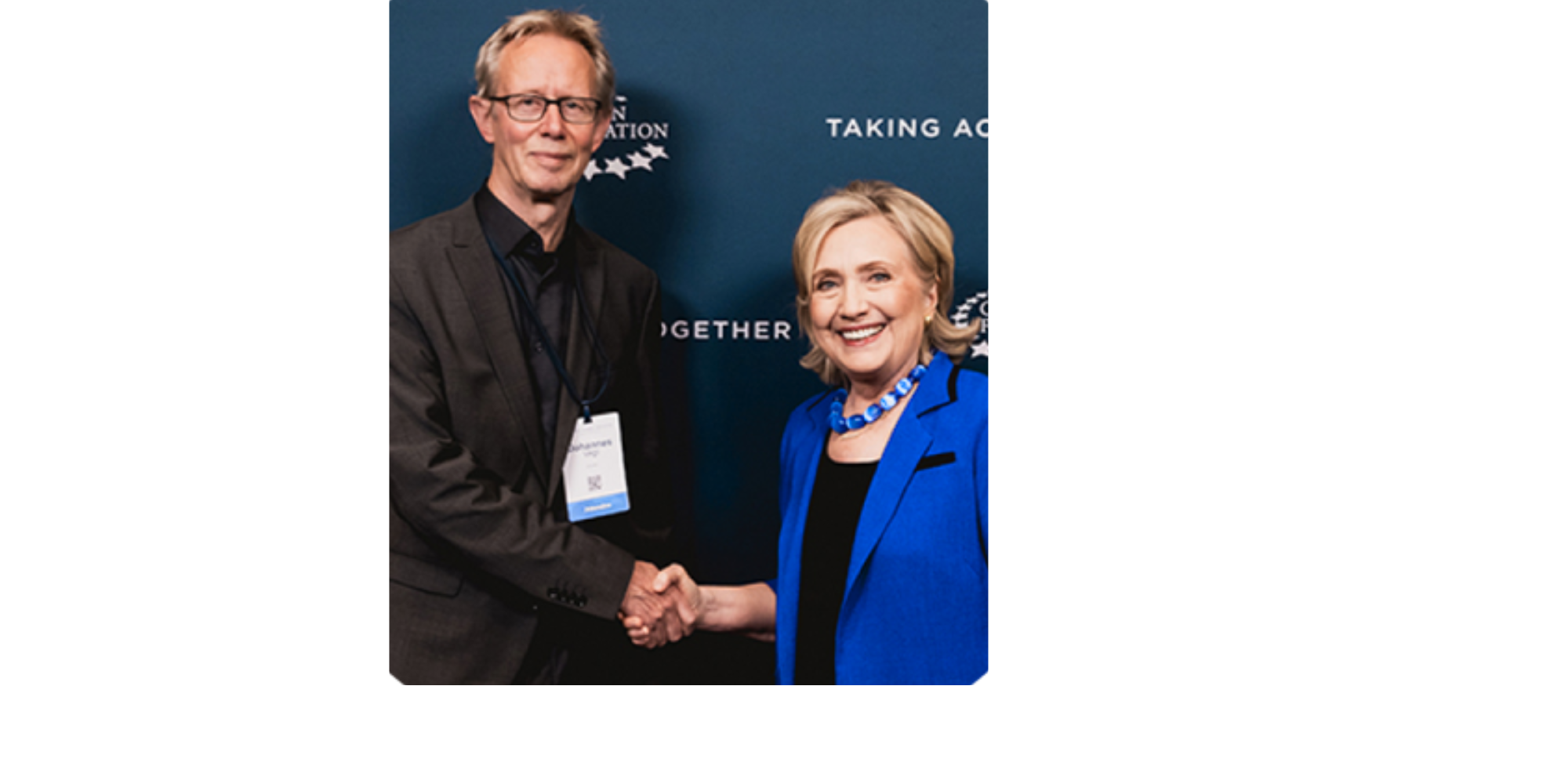Providing eye care in regions without ophthalmologists
Glaucare commits to empowering medical assistants (MAs) to conduct comprehensive eye examinations in remote regions through its “Ophmo” mobile eye clinic; overcoming limited access to traditional healthcare facilities. MAs working with partner health clinics will complete an online course and theoretical and practical examination to become qualified eye care medical assistants. The integrated devices included in the Ophmo kit will facilitate comprehensive examinations, while an app streamlines diagnostics for consistent care and facilitates effective referral to advanced care when needed. Glaucare’s goal is to bridge the gap in ophthalmic services, ensuring quality eye care is accessible to all. A total of 30 mobile eye clinics and 60 trained medical assistants will reach 300,000 individuals over the course of this two-year commitment. The Ophmo represents a new chapter in Glaucare’s commitment to revolutionize eye care provision, transcending geographical barriers and resource limitations.
Approach
Through this Commitment to Action, Glaucare will make The Ophmo, a mobile eye clinic that enables medical assistants to diagnose patients with eye problems, available in remote regions. By combining cutting-edge technology with innovative mobile ophthalmological measuring devices, Glaucare will empower medical assistants (MAs) to conduct comprehensive eye examinations in remote regions, overcoming limited access to traditional healthcare facilities. A total of 30 mobile eye clinics and 60 trained medical assistants will reach a 300,000 individuals over the course of two years.
Medical Assistants working with partner health clinics will complete an online course and theoretical and practical examination to become qualified eye care medical assistants. The integrated devices included in the Ophmo kit will facilitate comprehensive examinations, while an app streamlines diagnostics for consistent care.
The Ophmo MA team will always be in contact with an eye clinic or an ophthalmologist. Medical Assistants will utilize the integrated iPad and app to securely transmit patient data, test results, and relevant medical information to specialized eye care providers. Medical Assistants will receive instructions for immediate treatments, such as medications, from an ophthalmologist in real-time using the iPad FaceTime function. In other cases where further treatment is needed, such as cataract or age-related macular degeneration, the patient will be referred to the clinic.
Glaucare’s data-driven approach allows them to track and analyze referral metrics, such as referral wait times, completion rates, and treatment initiation timelines. These metrics enable Glaucare to continuously evaluate and improve the effectiveness of their referral system, ensuring that individuals diagnosed with eye problems receive the proper care they need in a timely manner.
Action Plan
Q4 2023: 1) Set up the pilot project in collaboration with the local hospital team or regional health organization, focusing on KwaZulu Natal in South Africa. 2) Establish a steering committee for project management and define different roles and responsibilities within the team. 3) Allocate necessary resources, including the number of Ophmo devices and staff involved in the project. 4) Develop clear reporting guidelines and data structures to assess the project’s success. 5) Customize training sessions for medical assistants based on local requirements. 6) Collaborate with the hospital/regional health organization to select and form teams of medical assistants. 7) Train medical assistants in the standardized diagnostic workflow and usage of the devices in conjunction with the digitized workflow.
Q1 to Q2 2024: 1) Finalize the setup of responsible teams of medical assistants dedicated to performing examinations in rural areas. 2) Establish communication channels for potential patients in rural areas. 3) Develop route planning and estimate the number of patients to be examined. 4) Define the timeline and contents of information exchange between medical assistants and the regional health organization/eye clinic, considering local data security issues.
Q3 2024: 1) Commence examinations in the field (rural areas) . 2) Medical assistants perform weekly reports based on the defined reporting structure.
Q4 2024: 1) Conduct monthly “lessons learned” assessments to evaluate the project’s progress. 2) Gather data for the final report on the pilot project. 3) Prepare the final report on the pilot project, summarizing the outcomes, challenges, and recommendations. 4) Develop a local action plan for the sustainable performance of the project beyond the pilot phase.
Q1 to Q3 2024: Implement feedback and scale in South Africa, Australia, India and Cameroon.
Background
The main causes of eye diseases include age-related factors, infections, accidents and refractive errors such as nearsightedness or farsightedness. In developing countries, there is often no organized eye care, especially in rural areas where underprivileged and uninsured people live. In rural Africa, for example, the ratio of ophthalmologists to patients is about 1:1 million, highlighting the significant gaps in care (British Journal of Ophthalmology 2020) . Furthermore, there is often a lack of knowledge about eye diseases, which results in these diseases not being detected or diagnosed in time. As a result, many people lose their sight. The WHO estimates that 90% of blind people live in low-income areas where there is a lack of eye care services.
In large countries such as Australia, India or Mexico, the distances to an eye doctor can be extraordinarily long, making it difficult for people to access the eye care services they need. Even in OECD countries with insurance coverage, access to timely eye care remains a problem. In Germany, for example, there is a shortage of ophthalmologists in certain areas, resulting in long waiting times for appointments. According to Statista, the average waiting time for an appointment with an ophthalmologist in Germany was about 6.9 weeks in 2021.
According to a 2020 report by the World Health Organization (WHO) , about 2.2 billion people worldwide suffer from visual impairment or blindness, with the majority of cases being preventable or treatable.
Progress Update
Ongoing activities include further improvement in the design of the ophmo mobile eye clinic and and workflow optimisation for teams that use this product. The supply chain has been further finalized and large quantities of the ophmo kit are being stored with Glaucare’s partner Mosaik. Glaucare representatives have traveled to various African countries that have shown interest in this kit and further developed relationships with providers and Ministries of Health. Prospects for the sale and distribution of ophmo cases in Nigeria are very good. Challenges are currently posed by the dismantling of USAID, which has delayed upcoming purchase decisions in Tanzania. Here, the purchase of 100 ophmo cases for Zanzibar was under discussion with the regional government, but this is being reconsidered given financial hardship.
Partnership Opportunities
Glaucare is actively seeking financial support to expand and implement the Ophmo approach in rural areas, with the goal of effectively addressing vision impairment. By partnering with Glaucare, your contribution will directly support the financing of mobile eye-care solutions outlined in their comprehensive action plan. Together, we can make a tangible difference in improving vision care and fulfilling the UN targets for 2030.
Furthermore, Glaucare is eager to collaborate with local health organizations and eye clinics to ensure the long-term sustainability of their mobile eye-care system and drive significant health improvements in rural communities. Logistical assistance, access to ophthalmological experts, scientific advice, and personnel for communication, organization, and distribution is welcomed. By working together, Glaucare and partners can enhance health outcomes and bring improved vision care to those in need., Glaucare offers a range of resources and services to support other organizations in their efforts to improve eye care access. Glaucare collaborates with partners like oDocs, Fraunhofer IZI and Icare to develop new eye devices and make them more accessible. Through these partnerships, Glaucare strives to create a collaborative ecosystem to work towards improving global eye care accessibility.
This text was written by the Clinton Foundation NYC and published on their website.
Contact
For further information and partnership opportunities, please contact: Johannes Vegt, Managing Director, jv@glau.care
www.glau.care

